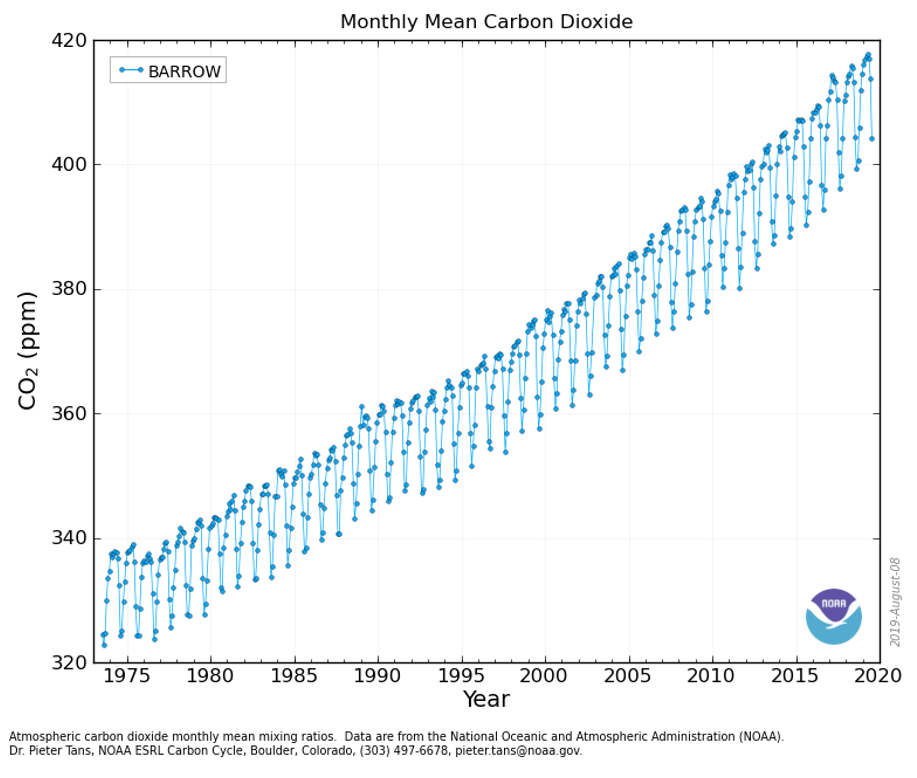
By Matthew Illian, Director of Responsible Investing
In 2013, the United Church of Christ became the first denomination to vote to divest from fossil fuels, and the following year, United Church Funds (UCF) created the Beyond Fossil Fuels fund, one of the first fossil fuel-free funds. Over the last eight years, investor efforts to combat climate change have expanded beyond fossil fuel producers to encompass every sector of the economy. These more recent efforts focus on carbon emissions, corporate lobbying and board elections, all of which add to the mounting pressure directed towards corporations who are not aggressively doing their part to protect the planet.
It is getting increasingly difficult for corporations to dodge the difficult but necessary work of cutting emissions. We at UCF are partnering with Climate Action 100+, a coalition representing $54 trillion and 575 investors, to focus our shareholder engagements on the companies responsible for 80 percent of annual industrial emissions. Climate Action 100+ now publicly benchmarks companies against their sector peers, and low grades are a reliable signal that a corporation has significant work to do. (For a low-grade example, consider International Paper Company’s assessment.)


Strategic Investor Partnerships Seek to Protect the Planet
Together with partners at the Interfaith Center for Corporate Responsibility (ICCR), we are pushing more corporations to carefully inspect their corporate lobbying. Many companies have declared support for transitioning to a greener economy, but their lobbying dollars continue to support business as usual. To help address this problem, we co-filed shareholder resolutions at UPS and Norfolk Southern Company seeking an audit of their lobbying efforts. In May, all shareholders will have an opportunity to vote on these climate lobbying shareholder resolutions at both companies.
Corporations that fail to establish clear carbon-cutting plans are at risk of having their boards of directors voted out of office. An effort led by non-profit Majority Action is currently underway to vote against directors at 20 laggard corporations in the key industries of electricity generation, oil and gas, and banking.
For example, Majority Action has recommended a vote against the CEO of J.P. Morgan, Jamie Dimon. While J.P. Morgan’s peers, Bank of America and Morgan Stanley, have both pledged net-zero financed emissions by 2050, Morgan is dragging its feet. This hasn’t kept Dimon from featuring the economic impact of climate change in his annual letter to shareholders. Dimon wrote that “a carbon tax (with a commensurate carbon dividend – directly returned to the people) is an excellent way to dramatically reduce carbon while investing in communities most adversely affected by this much-needed transition.” While we agree with Dimon’s views on a carbon tax, we want to see Dimon commit J.P Morgan to climate action rather than simply sharing his views.
Political Pressure Is Building
All eyes are now on President Biden as he is expected to pledge that the U.S. Government will eliminate carbon emissions by 2050 and seeks to pass an infrastructure bill that will pay for much of the necessary transition. Biden is hosting a Climate Leaders Summit on April 22 and 23, and the U.S.’s climate pledge is expected to be made public in time for the United Nations Climate Change Conference in November.
Addressing climate change isn’t only popular among progressives; younger conservatives also demonstrate support for strong climate policy. A June 2020 Pew Research Center survey shows 79 percent of Republicans 18 to 39 years old (Millennial and Gen Z) believe that the federal government should be prioritizing the development of alternative energy sources. A majority in this group also believes that more should be done to protect the air and water.
Near and Long Term Economic Realities
These trends point investors to what is dubbed as the “Inevitable Policy Response” by the Principles for Responsible Investing (PRI), to which United Church Funds is a signatory. According to PRI, the years 2023 and 2024 will be the critical period during which corporations will face significant government action to rachet up regulations, including carbon pricing, utility power transitions, combustion engine phase-out and more, all of which are seeking to enable a green economy. Savvy CFOs are paying close attention, because all of these policy changes imply new accounting assumptions for capital expenditures and reporting.
A recent survey of 738 economists conducted by the Institute for Policy Integrity at New York University estimated that failure to address climate change will cost $1.7 trillion by 2025 and $30 trillion by 2075. The cost of inaction grows the longer we wait.
United Church Funds is proud of our legacy of bringing climate-saving solutions to the marketplace and our investors. Yet we also recognize that so much more needs to be done. We want to see corporations across the globe take more action to protect our planet. With some healthy nudging, corporations are making progress. A nagging question remains: are we moving fast enough?